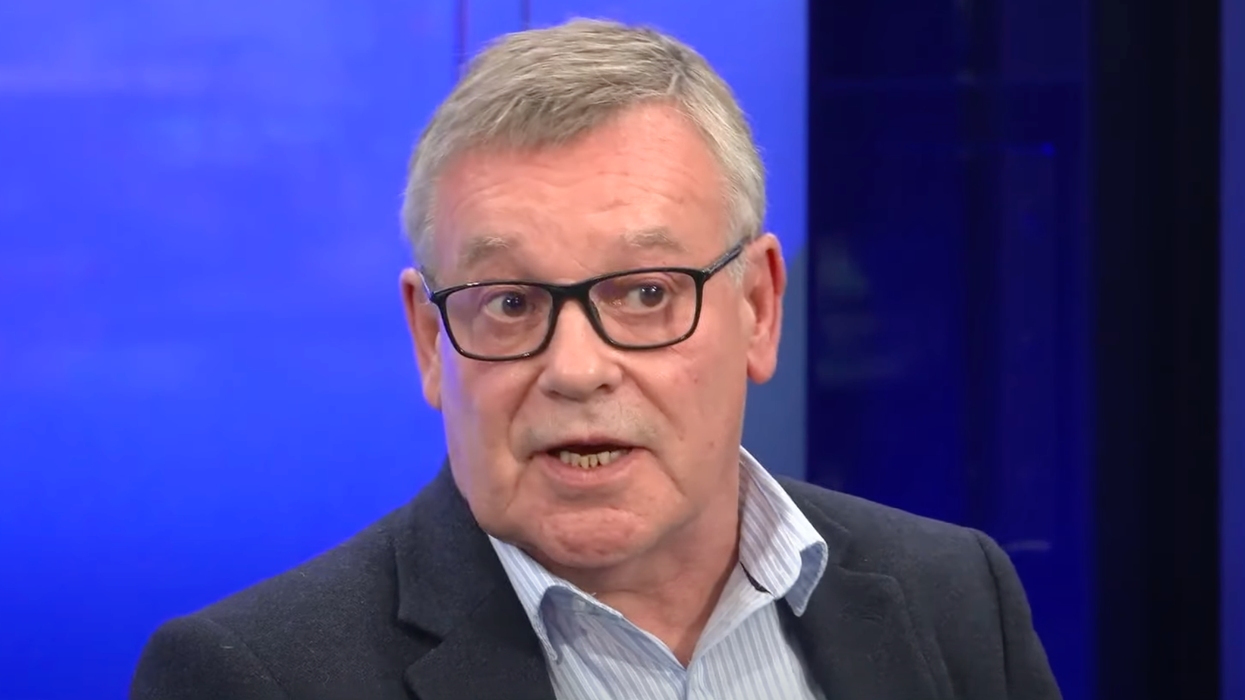Only honourable politicians should win elections, says Nigel Nelson

MPs are not allowed to call each other liars, and it is considered such a serious offence that if they do the Speaker will suspend them from Parliament. It’s the political equivalent of being given detention
| GB News
'People are more likely to believe their hairdresser than their Member of Parliament'
Don't Miss
Most Read
Latest
MPs are not allowed to call each other liars, and it is considered such a serious offence that if they do the Speaker will suspend them from Parliament. It’s the political equivalent of being given detention.
This is based on the notion that, as all MPs are honourable members, they cannot possibly tell a porkie.
The voters, of course, do not believe a word of it. A survey of 3,000 adults earlier this year found seven in ten think politicians lie.
And as far as trust goes MPs come below estate agents, journalists and bankers. People are more likely to believe their hairdresser than their Member of Parliament.
When it comes to honour the story of World War One PoW, Captain Robert Campbell, is hard to beat.
He wrote to the Kaiser asking for two weeks leave of absence from his Magdeburg prison camp plus two days travel to return to Britain to visit his dying mother.
He promised to return and did through neutral Holland and remained locked up until the war ended in 1918.
Now you might argue that in doing so Captain Campbell betrayed his country; that he should have broken his word so he could return to the trenches to kill Germans. But I challenge anyone not to find what he did both inspiring and admirable.
And he never forgot his duty to try to escape, spending nine months digging a tunnel and making a break for it before being recaptured.
Or there is the tale US agricultural inspector Bob Fletcher who suffered harassment and was even shot at after he gave up his job to tend three fruit farms belonging to Japanese families while they were interned during World War Two.
They came back three years later to find their farms in good shape and all the profits sitting in their accounts.
Contrast this with the behaviour of our politicians today. Rishi Sunak has made five pledges by which he says he should be judged.
But halving inflation, growing the economy, reducing debt and cutting NHS waiting lists (in any meaningful way) all look iffy. And his promise to stop the boats is downright impossible.
Which should mean we can expect his resignation at the end of the year. Bets, anyone, on the likelihood of that?
Keir Starmer is not immune to this affliction either. His pledges while campaigning for the Labour leadership look largely out the window - abolishing universal credit and tuition fees, income tax up for the top five per cent of earners, and full voting rights for EU nationals.
And the promise to take public services back into public ownership has now been watered down to rail only. He might get rid of the House of Lords, but I doubt it when all the constitutional complexities are fully understood.
But back then Labour were 22 points behind the Tories in the polls. Now Sir Keir is so far ahead that the latest survey predicts only 90 Conservative MPs will keep their seats. The Labour leader could promise nothing and still win the General Election by a landslide.
Perhaps best, then, to make any pledges from now on less ambitious and more achievable. That’s what Tony Blair did in 1997 when he issued his famous pledge card, and met all the targets on it in his first term.
The lesson for today’s politicians is how that set New Labour on course to win a second election. And a third.
TB did reduce class sizes to under 30 for five to seven year olds. He did introduce fast track punishment for young offenders and he did get 250,000 under 25s off benefit and into work.
He even delivered on his most difficult promise of a strong economy by keeping government debt below 40 per cent. It’s now 100 per cent.
So Sir Starmer is right to be listening to Sir Tony. As long as the Labour leader sticks to one campaign promise from 2020 and doesn’t get the UK involved in any more illegal foreign wars.
Shakespeare’s most rumbustious character Falstaff was contemptuous of honour. “Can honour set to a leg?” he asked. “No,” he said. “Or an arm? No. Or take away the grief of a wound? No. Honour hath no skill in surgery, then? No.”
All true. But it can still increase turnout at election time and win votes. Which is why today’s politicians should recognise the value of honour, and stop making promises that will only dishonour them when they are not kept.










